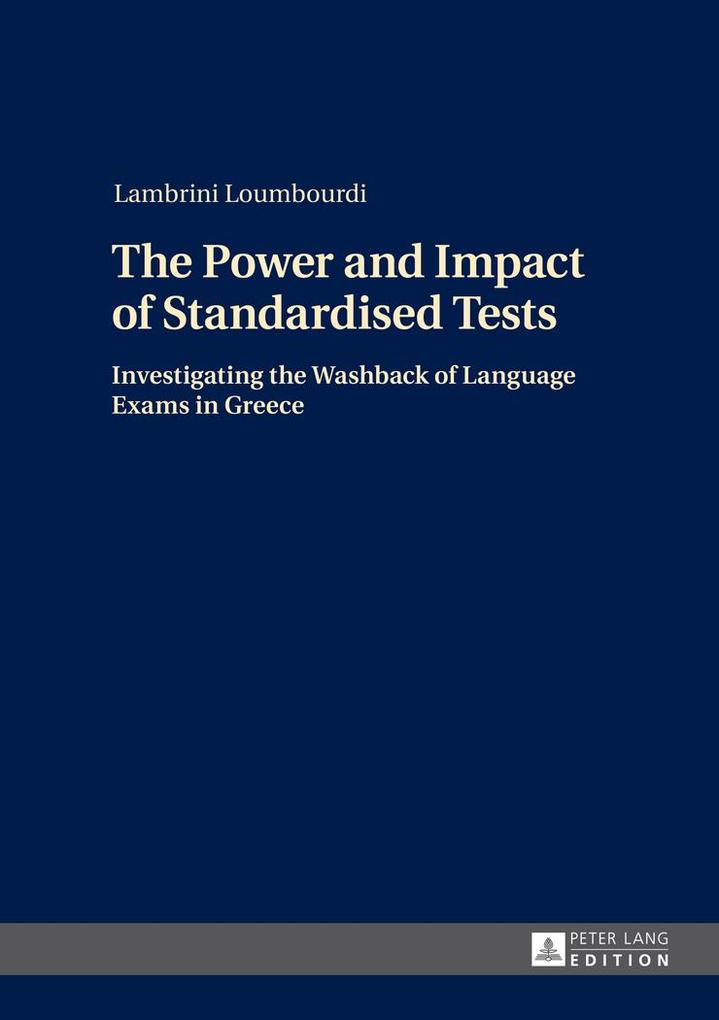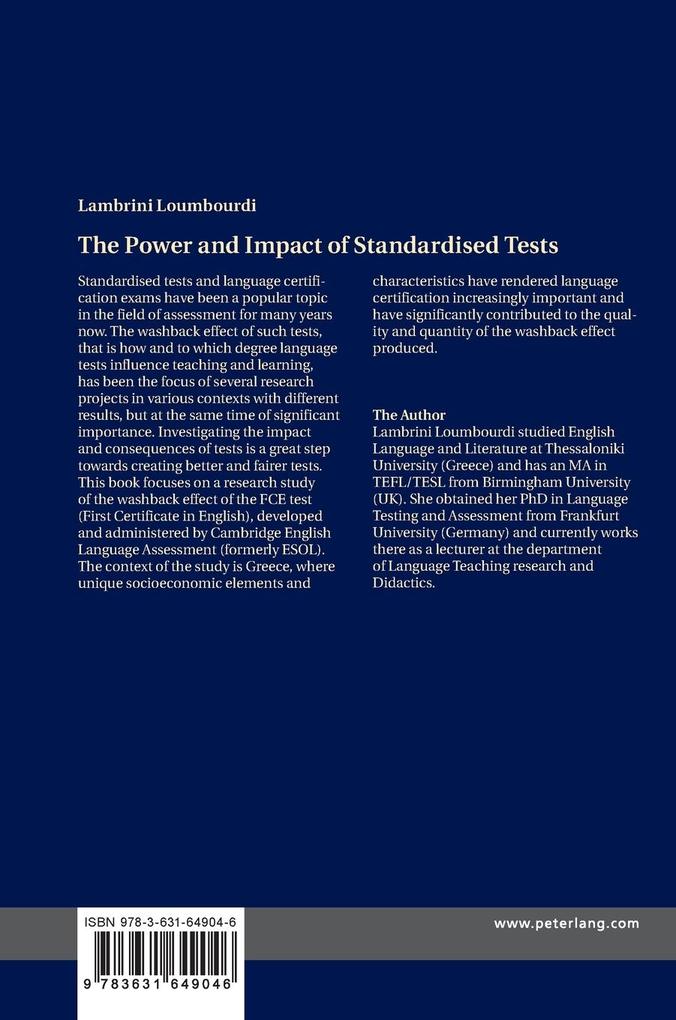
Zustellung: Sa, 07.06. - Do, 12.06.
Versand in 1-2 Wochen
VersandkostenfreiBestellen & in Filiale abholen:
The present research study investigates the washback effect i. e. the influence of tests on teaching and learning of the FCE test (First Certificate in English) in Greece. The results achieved by a mixed method research approach verified the complexity of the phenomenon and the uniqueness of the Greek context with regards to language certification.
Standardised tests and language certification exams have been a popular topic in the field of assessment for many years now. The washback effect of such tests, that is how and to which degree language tests influence teaching and learning, has been the focus of several research projects in various contexts with different results, but at the same time of significant importance. Investigating the impact and consequences of tests is a great step towards creating better and fairer tests. This book focuses on a research study of the washback effect of the FCE test (First Certificate in English), developed and administered by Cambridge English Language Assessment (formerly ESOL). The context of the study is Greece, where unique socioeconomic elements and characteristics have rendered language certification increasingly important and have significantly contributed to the quality and quantity of the washback effect produced.
Inhaltsverzeichnis
Contents: The Greek ELT context The FCE exams Test impact and washback Pre- and post-test washback Questionnaires to teachers and students Classroom observation The power of tests Cambridge English Language Assessment Investigation of impact and consequences of tests.
Produktdetails
Erscheinungsdatum
26. Mai 2014
Sprache
englisch
Auflage
1. Auflage
Seitenanzahl
198
Autor/Autorin
Lambrini Loumbourdi
Verlag/Hersteller
Produktart
gebunden
Gewicht
375 g
Größe (L/B/H)
216/153/16 mm
ISBN
9783631649046
Entdecken Sie mehr
Bewertungen
0 Bewertungen
Es wurden noch keine Bewertungen abgegeben. Schreiben Sie die erste Bewertung zu "The Power and Impact of Standardised Tests" und helfen Sie damit anderen bei der Kaufentscheidung.










